
Use Cases
Neurodegenerative
Diseases
Slow down the cognitive and functional deterioration of your patients with activities focused on cognitive stimulation.
To which neurodegenerative diseases can we apply NeuronUP?
Some activities to work with
neurodegenerative diseases
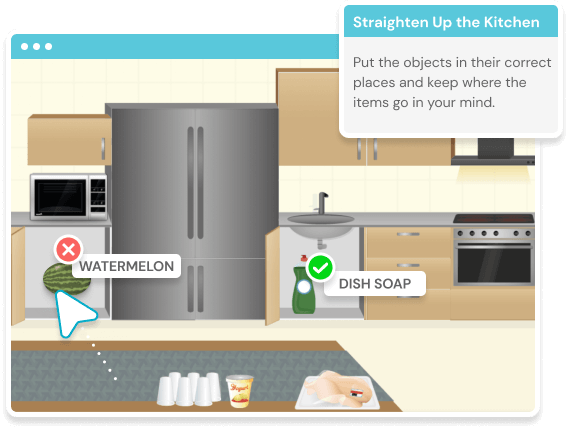
Straighten Up
the Kitchen
This activity, in which the patient must place each object in its corresponding place, works on sustained attention, semantic memory, episodic memory and reasoning. It can be adapted to the patient’s needs, personalizing it:
- Difficulty level and number or exercises.
- Maximum time allowed and whether or not timer is visible.
- Number of elements involved in each exercise.
- Number of aids and error limit.
Select Items from a Category
In these worksheets the patient selects specific elements from a group of stimuli, exercising selective attention and semantic memory.
- Organized in different levels of difficulty.
- Available in digital or paper format.
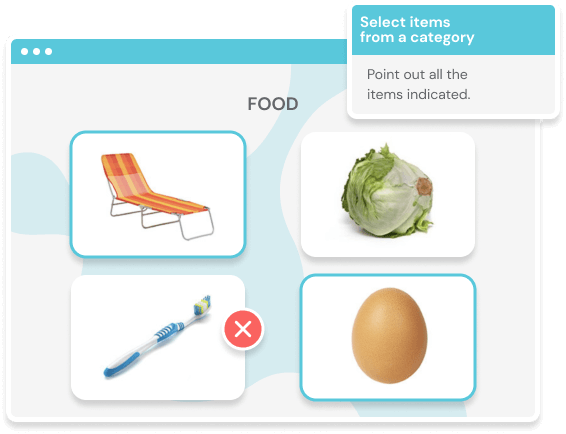
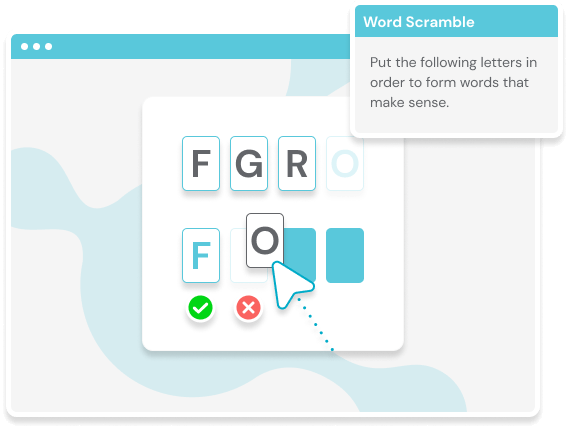
Word Scramble
In this activity the patient must use the letters provided to form a word, thus working their vocabulary and working memory. It allows to adjust:
- Level or difficulty, word length and personalization of words (e.g., names of people known to the patient).
- Number of exercises.
- Maximum time allowed and whether or not timer is visible.
- Number of clues allowed.
- Number of errors allowed.
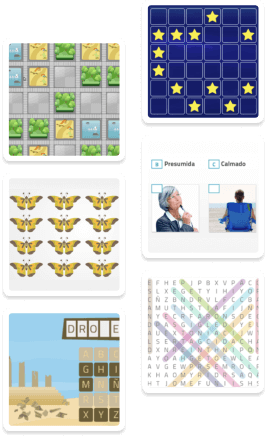
Discover 10,000 more exercises on our platform
Support your intervention with data
Monitor the progress of the intervention
Keep track of the results obtained with graphs that are updated at the end of each exercise, showing the patient’s progress for a specific exercise or at a general level from the beginning of the treatment until today.
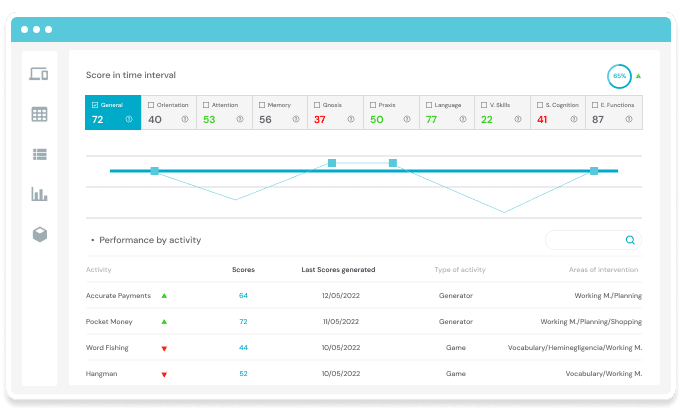
On what basis
do we design our exercises?
We identify the constructs, operations and functions (Burgess et al., 2006) involved in human activity, in order to create exercises capable of calibrating them during the rehabilitation process.
Burgess, P. W., Alderman, N., Forbes, C., Costello, A., M-A.coates, L., Dawson, D. R., … Channon, S. (2006). The case for the development and use of measures of executive function in experimental and clinical neuropsychology.Journal of the International Neuropsychological Society, 12(02), 194- 209.
The aim is to create motivational and customizable ecological contents that support the processes of neuropsychological stimulation and rehabilitation (Wilson, 1987; 1989).
Wilson, B. (1987). Single-Case Experimental Designs in Neuropsychological Rehabilitation. Journal of Clinical and Experimental Neuropsychology, 9(5), 527-544. doi:10.1080/01688638708410767
Related studies
Neurodegenerative Diseases
Crete-Nishihata, M., Baecker, R. M., Massimi, M., Ptak, D., Campigotto, R., Kaufman, L. D., … Black, S. E. (2012). Reconstructing the Past: Personal memory Technologies Are Not Just Personal and Not Just for memory. Human–Computer Interaction, 27(1-2), 92-123. doi:10.1080/07370024.2012.656062
Mattioli, F., Stampatori, C., Zanotti, D., Parrinello, G., & Capra, R. (2010). Efficacy and specificity of intensive cognitive rehabilitation of attention and executive functions in multiple sclerosis. Journal of the Neurological Sciences, 288(1–2), 101-105. doi:10.1016/j. jns.2009.09.024
What our clients say about us
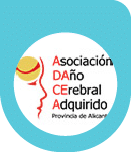
Paula Rodríguez,
neuropsychologist
I have been using NeuronUP for more than two years at the brain injury association and the patients are very happy to work with the platform’s activities.”

Gloria Cano,
neuropsychologist
I think it is a platform that every psychologist and neuropsychologist should have, as it provides you with the necessary material to work on cognitive stimulation in a comfortable and easy way, in person and from home”.

Rocío Mendoza,
neuropsychologist
With NeuronUP, the monitoring of children’s progress is more objective and demonstrable to parents.”
Learn more about
NeuronUP
Try it for free
The platform that 3,500+ professionals use on a daily basis